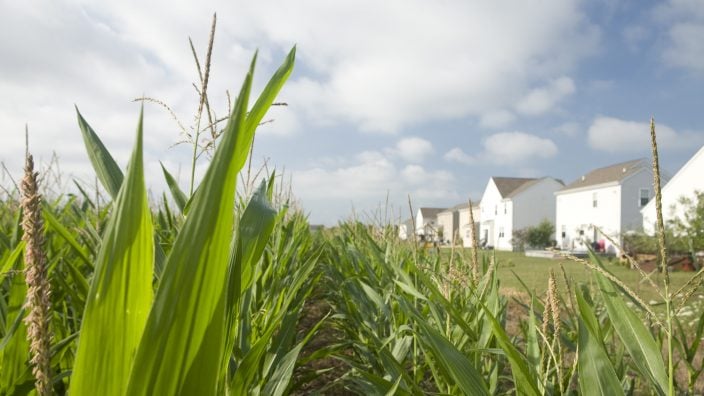Legal with Leah: The questions around data centers
Leah Curtis joins this Legal with Leah to talk about what data centers mean for local communities and how to stay engaged in the development process
Read MoreAfter the major news of Intel building a massive technology plant in Licking County, “progress” is making its way deeper in rural areas of Ohio. That has spurred some conversations about how future economic development projects will look, and some are wondering if eminent domain will play a role in finding the land resources for those projects. For this Legal with Leah, Ohio Farm Bureau Policy Counsel Leah Curtis talks about economic development and eminent domain.
Listen to Legal with Leah, a podcast featuring Ohio Farm Bureau’s Policy Counsel Leah Curtis discussing topics impacting farmers and landowners.
Ty Higgins [00:00:00] After the major news of Intel building a massive technology plant in Licking County, progress is making its way deeper into rural areas of Ohio. That has spurred some conversations about how future economic development projects will look. And some are wondering if eminent domain will play a role in finding the land resources for those future projects. That’s our topic matter for this Legal with Leah. Leah Curtis joins me. She’s policy counsel with Ohio Farm Bureau. So let’s start with what eminent domain is and go from there.
Leah Curtis [00:00:31] Eminent domain is the idea that the government takes your property for some sort of public purpose. The government has to show that it’s necessary to take it and that it’s going to be used for a public use. Aside from the government here in Ohio and most other states in the country and at the federal level, there’s also some companies that will have the right to use eminent domain. So the government has sort of said we’re transferring our power to you and those companies are mainly utilities, and that’s for the purpose of making sure everyone has access to public utility services.
Ty Higgins [00:01:03] So what types of things do we see eminent domain used for?
Leah Curtis [00:01:07] So from the government side, we see it more for things like roads. It could be a new school building. It could be a park. It could be trails, any of those uses that are going to be open to the public, and then utilities are typically using this for that utility infrastructure. So transmission lines, easements for water lines, underground power lines, those kinds of things to make sure everybody can access those services.
Ty Higgins [00:01:32] And I guess one of the reasons we’re getting calls at Farm Bureau is the question of can the government take my land and then give it to somebody else?
Leah Curtis [00:01:39] So we get this question still a lot, even though it’s been fairly settled in Ohio for a while. So the confusion comes because at the federal level, the U.S. Supreme Court has said that that can happen, so the government could take land and give it to another private user for the purposes of economic development. In Ohio, though, we have our own constitution and our Ohio Constitution and our Ohio Supreme Court has said that that is not allowed, that there are very, very limited circumstances where that can happen. There’s really only a handful of situations where that could happen. And so we can’t really use economic development as a public reason for taking property by the government.
Ty Higgins [00:02:22] So what might happen when a major economic development project like Intel happens in my area?
Leah Curtis [00:02:29] So obviously, there’s going to be some changes to your neighborhood, and eminent domain might be used because of infrastructure needs. Projects like that may need different water services or electric services or broadband. Broadband is not a public utility, but it might get bumped into there. So there may be some eminent domain happening to accommodate all that new infrastructure, and private entities might approach you about selling your property. They’re not going to have that right of eminent domain necessarily to buy it, to put a house on or to put a new building on. But they may be making you offers to sell that property in order to locate other portions of their business or to build houses, that kind of thing.
Ty Higgins [00:03:11] So if I’m a landowner and I’m faced with eminent domain threat, what can I do?
Leah Curtis [00:03:15] So if you think that you’re going to have an eminent domain situation on your hands, as soon as you know or even suspect, we would really suggest that you speak with an attorney early in the process. When you start with working with an attorney in that process, you can lay the groundwork a lot better. And unfortunately, we have had situations where people have called us and they have just ignored the situation, even up to ignoring court summons. And that is not going to end well for anyone, for any landowner. So if you get a letter about it, if you hear about it, you think it’s happening, it’s a good idea to get in with an attorney early and start to lay that groundwork to make sure you can either fight that taking or negotiate for the best terms possible for you.
Ty Higgins [00:04:00] You mentioned how eminent domain is constantly a concern for Ohio Farm Bureau members. So what are we doing as an organization on that front?
Leah Curtis [00:04:06] So we talk to members pretty much every week, I would say, someone who has an eminent domain concern and we can definitely help you with kind of understanding how the process works and what the law is, and we can help you find some legal counsel if you need help with that. But then on the other side, the legislative side, we’re also trying to work on some reforms to eminent domain laws. We had a major eminent domain reform in 2007, and that was a long time ago. And now we know there are other issues that need to be addressed when it comes eminent domain, particularly around protections for the landowner. So we are taking a look at that and trying to push for some reforms to our eminent domain law to make it a better situation for landowners.
Ty Higgins [00:04:51] Plenty of resources and great information on our website. While you’re there, you can listen to other episodes of Legal with Leah. Leah Curtis, policy counsel with Ohio Farm Bureau, thank you.
Leah Curtis [00:05:02] Thank you.

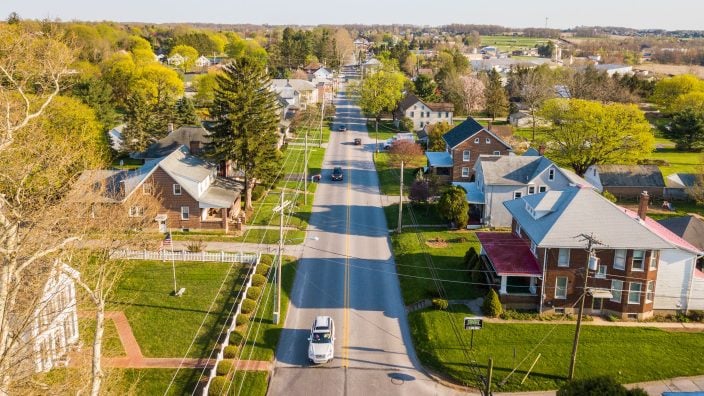
Leah Curtis joins this Legal with Leah to talk about what data centers mean for local communities and how to stay engaged in the development process
Read More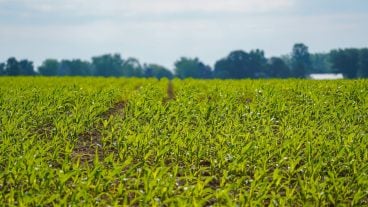
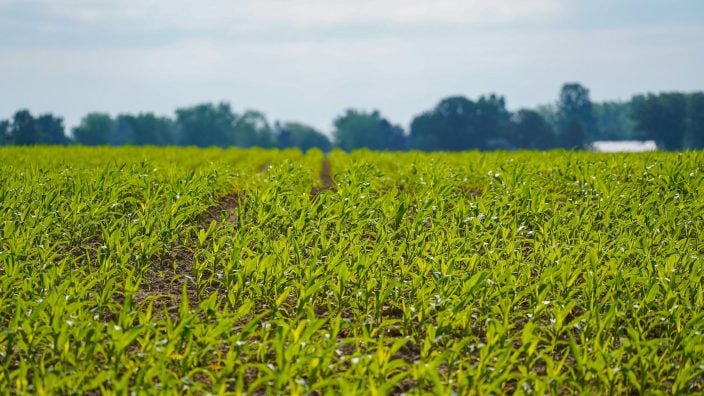
Ohio Farm Bureau advocated for a change in the law to allow family members and employees to handle pesticides while under the supervision of a licensed applicator. The rules around HB 10 are being finalized.
Read More

Four property tax reform bills were signed into Ohio law at the end of 2025. Ohio Farm Bureau Associate General Counsel Leah Curtis breaks down the bills and what the changes mean for Ohioans.
Read More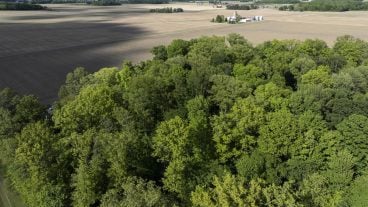

Learn what the requirements are to legally fly a drone in Ohio as well as steps the Ohio Legislature has taken in terms of security concerns.
Read More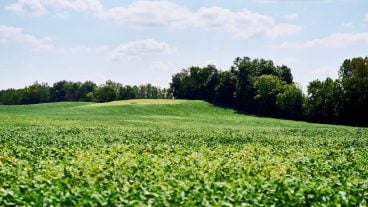
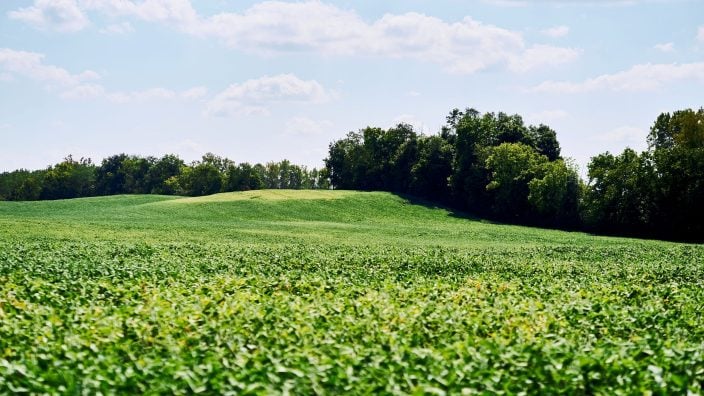
In 2025, about 21 counties are going through a reappraisal or update, and because Ohioans pay taxes one year behind, they will see new property tax bills in January 2026.
Read More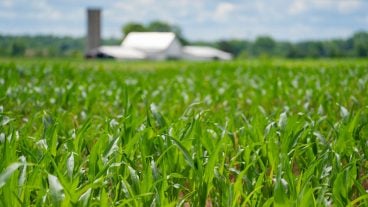
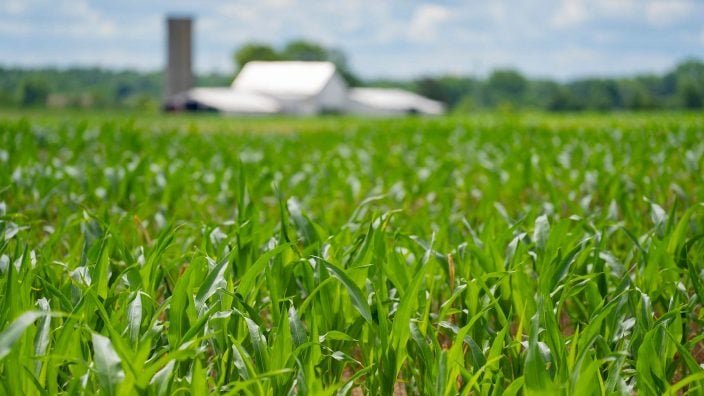
Any unlicensed handlers who use restricted use pesticides will need to have additional training. Farm Bureau will be working on legislation to give employers a choice on how to provide training.
Read More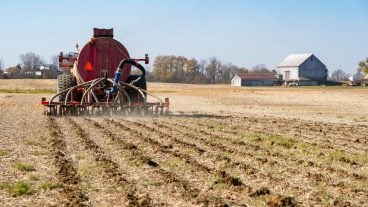
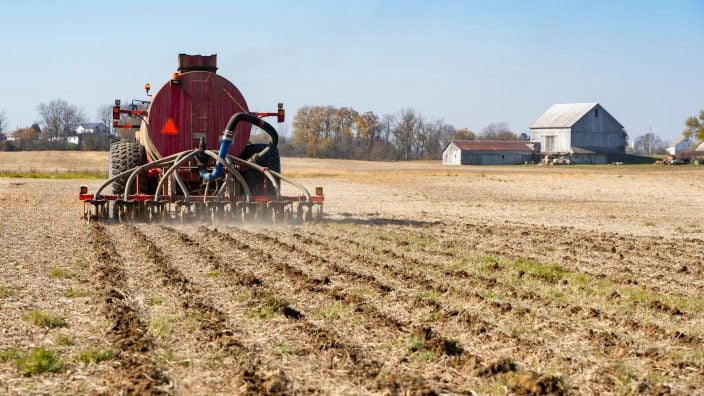
Current Agricultural Use Value is often discussed as a farmland preservation tool, but there are some other tools in the law that landowners can consider.
Read More

Update: As of Feb. 27, 2025, the Financial Crimes Enforcement Network announced no fines, penalties or enforcement action will be taken against companies based on failure to file or update BOI by March 21.
Read More

Update: As of Feb. 27, 2025, the Financial Crimes Enforcement Network announced they would not issue any fines or penalties or take enforcement action against companies based on failure to file or update beneficial ownership information reports by the March 21, 2025, deadline.
Read More

Update: As of Feb. 27, 2025, the Financial Crimes Enforcement Network announced they would not issue any fines or penalties or take enforcement action against companies based on failure to file or update beneficial ownership information reports by the March 21, 2025, deadline.
Read More